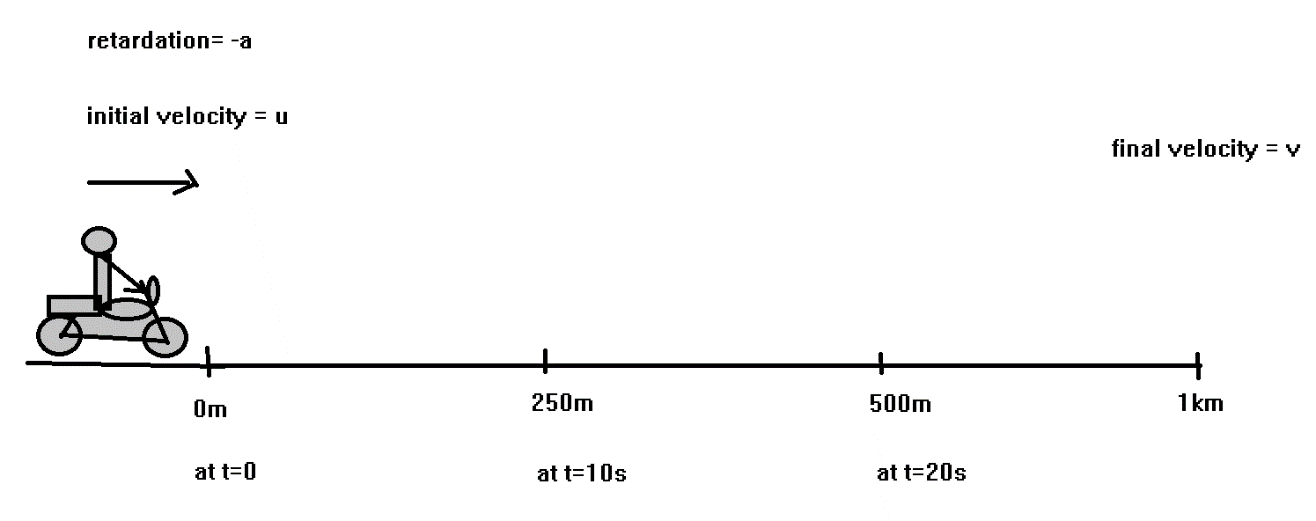Question
Question: A motorcyclist moving with uniform retardation takes \(10s\) and \(20s\) to travel successive quarte...
A motorcyclist moving with uniform retardation takes 10s and 20s to travel successive quarter kilometres. How much further will he travel before coming to rest?
Solution
Hint Such type of question can be solved by using Newton’s law of motion. Here motorcyclists move with uniform retardation which means there is a uniform negative acceleration. We will use Newton’s law of motion to find the velocity at which the motorcyclist is moving and by using we will find the distance covered by the motorcyclist before coming to rest.
Formula used:
Newton’s law of motion
d=ut+21at2
⇒2ad=v2−u2
Complete Step by step answer

As we can see from the figure the motorcyclist moving with uniform retardation −am/s2 and initial velocity u. As he is moving successive quarter kilometers so time at t=10swe will cover 250m and now he will take t=20sto travel 500mwhich means that from the starting point he will take total time t=30sto cover 500mthe distance.
Now from Newton’s law of motion can be given as
d=ut+21at2
For the first quarter, he takes t=10sto covers d=250m
∴250=10u−21a×102 (Here −a is retardation)
⇒25=u−5a -------------------- Equation (1)
Now for the second quarter, he takes a total t=30s to cover d=500m from the starting point. Hence
500=30u−21a×302
On further solving the equation we get,
50=3u−45a
⇒350=u−15a ------------------ Equation (2)
Now subtracting the equation (2) from (1) we can deduce
25−350=u−u−5a+15a
On further solving the equation we get,
325=10a
⇒a=3025m/s2
Now substituting the value of a in equation (2) we get
350=u−15×3025
⇒350=u−225
Now rearranging the terms by transpositions we can deduce
u=350+225=6100+75
⇒u=6175m/s ----------------------- Equation (3)
Now as we know that the motorcyclist is decelerating and after some time he will come to rest. Let us consider the travels some distance d before coming to rest and its final velocity will become v=0m/s. Hence
2ad=v2−u2
⇒−2×3025×d=02−621752
Now solving this equation we get
d=36×25175×175×15=3618375
∴d=510.4166m
As 500m is already covered, hence the distance covered by the motorcyclist before coming to rest
x=510.4166m−500m
⇒x=10.4166m
So the distance covered by motorcyclists before coming to rest will be x=10.4166m.
Note When we are dealing with such types of problems we have to stay aware of the equations of motion. Also while solving the numerical ensure each physical quantity is in its SI units. If not then proceed with converting it first.
